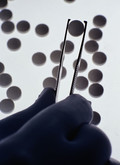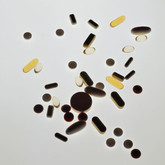Generics/Research
Generic or brand-name drugs for cardiovascular disease? Does the evidence match current opinion?
Cardiovascular drugs constitute a large proportion of outpatient prescription drug spending.
Are generic diuretics clinically equivalent to their brand-name counterparts for the management of cardiovascular disease?
Prescription costs are rising, mainly due to brand-name drugs recouping their investment during the period of patent protection and market exclusivity. For this reason, many payers and prescribers encourage use of the cheaper generic versions [1]. This has been found to have another positive consequence, namely the increased accessibility to prescription treatments and an increased compliance with drug regimens, particularly in the case of chronic conditions [2, 3].
The clinical equivalence of generic and brand-name calcium channel blockers
Companies seeking to launch a generic drug are required to submit a dossier to authorities, which does not contain the results of extensive preclinical and clinical testing demonstrating safety and efficacy in the target population, as is the case with novel drugs, but only limited data and evidence demonstrating the fundamental premise that the generic is bioequivalent to its brand-name counterpart.
The therapeutic equivalence of antiplatelet agents, ACE-inhibitors, statins and alpha-blockers
The potential changes in pharmacy formulary policy, due to the availability of generic versions of cardiovascular drugs, should be based on as much evidence as possible.
The therapeutic equivalence of brand-name and generic narrow therapeutic index (NTI) cardiovascular drugs
There are many physicians and patients who have concerns that the bioequivalent generics may not have an equivalent nature in terms of their clinical effect and benefit. In the realm of cardiovascular disease, this can include such parameters as heart rate, blood pressure and laboratory measurements.
International trends in generics: the EU
Few studies have conducted an international price comparison of generic medicines as it is hard to access comparable data. A 2007 study by Prof. Dr. Steven Simoens examined national pricing policies in some EU countries and related them to generics prices (see Table 1).
Medicines pricing policies in Europe: a review
The OECD countries spent 4.6% more per capita per year on pharmaceuticals from 1995 to 2005 although the annual average economic growth was only 2.2% during the same period [1].
The generic drug wars: deeply discounted medication
Fierce competition among major pharmacy chains in the US, such as CVS, Walgreens and Walmart, has led to a generic prescription pricing war with unclear public health implications.
Brand loyalty, generic entry and price competition in the US
In a new working paper from the US National Bureau of Economic Research researchers investigated brand loyalty, generic entry and price competition in the 25 years since the 1984 Waxman-Hatch legislation came into force.
Canadians pay almost twice as much as Americans for generics
A new study released on 13 October 2010 by the Canadian Fraser Institute finds that Canadians pay far higher prices, in fact almost double, for generic drugs than patients in the US.












